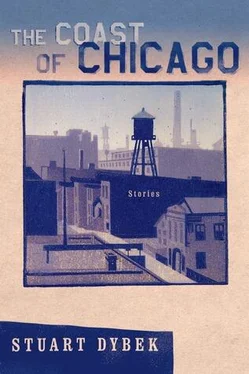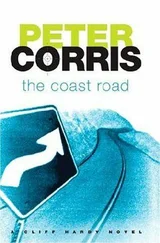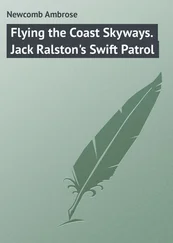“Holy Christ! Dave, you could have ruined your life back there forever,” Zig told me. It sounded like something my father would have said. Worries were making Ziggy more nervous that summer than ever before. The Sox had come from nowhere to lead the league, triggering Zig’s old nightmare about atom bombs falling on the night the White Sox won the pennant.
Besides the busted headlights, the sign pole had left a perfect indentation in my bumper. It was Pepper’s idea to wind chains around the bumper at the point of indentation, attach the chains to the bars of a basement window, and floor the car in reverse to pull out the dent. When we tried it the bumper tore off. So Pepper, who saw himself as mechanically inclined, wired on a massive wooden bumper. He’d developed a weird affection for the Chevy. I’d let him drive and he’d tool down alleys clipping garbage cans with the wooden front end in a kind of steady bass-drum beat: boom boom boom .
Pepper reached the point where he wanted to drive all the time. I understood why. There’s a certain feeling of freedom you can get only with a beater, that comes from being able to wreck it without remorse. In a way it’s like being indestructible, impervious to pain. We’d cruise the neighborhood on Saturdays, and everywhere we looked guys would be waxing their cars or tinkering under the hoods.
I’d honk at them out the window on my sax and yell, “You’re wasting a beautiful day on that hunk of scrap.”
They’d glance up from their swirls of simonize and flip me the finger.
“Poor, foolish assholes,” Pepper would scoff.
He’d drive with one hand on the wheel and the other smacking the roof in time to whatever was blaring on the radio. The Chevy was like a drum-set accessory to him. He’d jump out at lights and start bopping on the hood. Since he was driving, I started toting along my sax. We’d pull up to a bus stop where people stood waiting in a trance and Pepper would beat on a fender while I wailed a chorus of “Hand Jive”; then we’d jump back in the Chevy and grind off, as if making our getaway. Once the cops pulled us over and frisked us down. They examined my sax as if it were a weapon.
“There some law against playing a little music?” Pepper kept demanding.
“That’s right, jack-off,” one of the cops told him, “It’s called disturbing the peace.”
Finally, I sold Pepper the Chevy for twenty-five dollars. He said he wanted to fix it up. Instead, he used it as a battering ram. He drove it at night around construction sites for the new expressway, mowing down the blinking yellow barricades and signs that read: SORRY FOR THE INCONVENIENCE…
Ziggy, who had developed an eye twitch and had started to stutter, refused to ride with him anymore.
The Sox kept winning.
One night, as Pepper gunned the engine at a red light on Thirty-ninth, the entire transmission dropped out into the street. He, Deejo, and I pushed the car for blocks and never saw a cop. There was a slight decline to the street and once we got it moving, the Chevy rolled along on its own momentum. Pepper sat inside steering. With the key in the ignition the radio still played.
“Anybody have any idea where we’re rolling to?” Deejo wanted to know.
“To the end of the line,” Pepper said.
We rattled across a bridge that spanned the drainage canal, and just beyond it Pepper cut the wheel and we turned off onto an oiled, unlighted cinder road that ran past a foundry and continued along the river. The road angled downhill, but it was potholed and rutted and it took all three of us grunting and struggling to keep the car moving.
“It would have been a lot easier to just dump it on Twenty-fifth Place,” Deejo panted.
“No way, man,” Pepper said. “We ain’t winos.”
“We got class,” I said.
The road was intersected by railroad tracks. After half an hour of rocking and heaving we got the Chevy onto the tracks and from there it was downhill again to the railroad bridge. We stopped halfway across the bridge. Pepper climbed onto the roof of the car and looked out over the black river. The moon shined on the oily surface like a single, intense spotlight. Frankie Avalon was singing on the radio.
“Turn that simp off. I hate him,” Pepper yelled. He was peeing down onto the hood in a final benediction.
I switched the radio dial over to the late-night mush-music station — Sinatra singing “These Foolish Things”—and turned the volume up full blast. Pepper jumped down, flicked the headlights on, and we shoved the car over the bridge.
The splash shook the girders. Pigeons crashed out from under the bridge and swept around confusedly in the dark. We stared over the side half expecting to see the Chevy bob back up through the heavy grease of the river and float off in the moonlight. But except for the bubbles on the surface, it was gone. Then I remembered that my sax had been in the trunk.
A week later, Pepper had a new car, a red Fury convertible. His older cousin Carmen had cosigned. Pepper had made the first payment, the only one he figured on making, by selling his massive red-sparkle drum set — bass, snare, tom-tom, cymbals, high hat, bongos, conga, cowbell, woodblock, tambourine, gong — pieces he’d been accumulating on birthdays, Christmases, confirmation, graduation, since fourth grade, the way girls add pearls to a necklace. When he climbed behind those drums, he looked like a mad king beating his throne, and at first we refused to believe he had sold it all, or that he was dropping out of school to join the marines.
He drove the Fury as gently as a chauffeur. It was as if some of the craziness had drained out of him when the Chevy went over the bridge. Ziggy even started riding with us again, though every time he’d see a car pass with a GO GO SOX sign he’d get twitchy and depressed.
Pennant fever was in the air. The city long accustomed to losers was poised for a celebration. Driving with the top down brought the excitement of the streets closer. We were part of it. From Pepper’s Fury the pace of life around us seemed different, slower than it had from the Chevy. It was as if we were in a speedboat gliding through.
Pepper would glide repeatedly past Linda Molina’s house, but she was never out as she’d been the summer before, sunning on a towel on the boulevard grass. There was a rumor that she’d gotten knocked up and had gone to stay with relatives in Texas. Pepper refused to believe it, but the rest of us got the feeling that he had joined the marines for the same reason Frenchmen supposedly joined the foreign legion.
“Dave, man, you wanna go by that broad you know’s house on the North Side, man?” he would always offer.
“Nah,” I’d say, as if that would be boring.
We’d just drive, usually farther south, sometimes almost to Indiana, where the air smelled singed and towering foundry smokestacks erupted shooting sparks, like gigantic Roman candles. Then, skirting the worst slums, we’d head back through dark neighborhoods broken by strips of neon, the shops grated and padlocked, but bands of kids still out splashing in the water of open hydrants, and guys standing in the light of bar signs, staring hard as we passed.
We toured places we’d always heard about — the Fulton produce mart with its tailgate-high sidewalks, Midway Airport, skid row — stopped for carryout ribs, or at shrimp houses along the river, and always ended up speeding down the Outer Drive, along the skyline-glazed lake, as if some force had spun us to the inner rim of the city. That was the summer Deejo let his hair get long. He was growing a beard, too, a Vandyke, he called it, though Pepper insisted it was really trimmings from other parts of Deejo’s body pasted on with Elmer’s glue.
Wind raking his shaggy hair, Deejo would shout passages from his dog-eared copy of On the Road , which he walked around reading like a breviary ever since seeing Jack Kerouac on “The Steve Allen Show.” I retaliated in a spooky Vincent Price voice, reciting poems off an album called Word Jazz that Deej and I had nearly memorized. My favorite was “The Junkman,” which began:
Читать дальше












